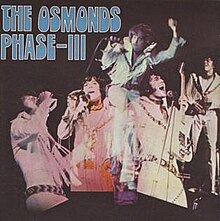
Frontiers is the eighth studio album by the American rock band Journey, released in February 1983, by Columbia Records. This was the band's last album to feature bassist Ross Valory until 1996's Trial by Fire.
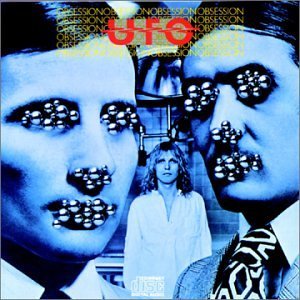
Obsession is the seventh studio album by English rock band UFO, released in 1978. This was the final studio album to feature Michael Schenker on lead guitar until he returned to the band in 1993. A single from the album, "Only You Can Rock Me" / "Cherry", was also released in 1978. So too was the band's first 3-track EP "Only You Can Rock Me", "Cherry" / "Rock Bottom", reaching No. 50 in the UK. The album was recorded at an abandoned post office in Los Angeles.
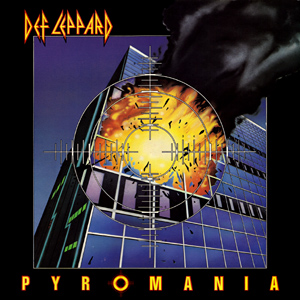
Pyromania is the third studio album by English rock band Def Leppard, released on 20 January 1983 through Vertigo Records in UK and Europe and through Mercury Records in the US. The first album to feature guitarist Phil Collen who replaced founding member Pete Willis, Pyromania was produced by Robert John "Mutt" Lange. The album was a shift away from the band's traditional heavy metal roots toward a more radio-friendly sound, finding massive mainstream success. Pyromania charted at No. 2 on the Billboard 200, No. 4 on the Canadian RPM Album chart and No. 18 on the UK Albums Chart. Selling over ten million copies in the US, it has been certified diamond by the RIAA.

Third Stage is the third studio album by the American rock band Boston, released on September 26, 1986, on MCA Records. It was recorded at Boston co-founder Tom Scholz's Hideaway Studio over a long, strained, six-year period "between floods and power failures". Scholz and vocalist Brad Delp were the only original members. The lyrics invoke themes of aging and working through stages in life. The first track and lead single, "Amanda", became a number one hit and one of the group's best known songs. The album itself was eventually certified 4× platinum by the RIAA.

The Osmonds were an American family music group who reached the height of their fame in the early to mid-1970s. The group had its best-known configurations as a quartet and a quintet. The group has consisted of siblings who are all members of a family of musicians from Ogden, Utah, and have been in the public eye since the 1960s.
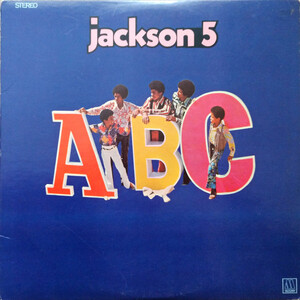
ABC is the second studio album by the Jackson 5, released on May 8, 1970 by Motown. It featured the No. 1 singles "ABC" and "The Love You Save". Also present on the LP are several notable album tracks, including a cover of Funkadelic's "I'll Bet You", "I Found That Girl", and "The Young Folks", originally recorded by Diana Ross and the Supremes.
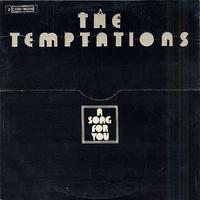
A Song for You is a 1975 album by the Temptations. It features two R&B #1 hits: "Happy People", and "Shakey Ground", one of the group's final R&B #1 songs.

Raise! is the eleventh studio album by the American band Earth, Wind & Fire, released on November 14, 1981, by ARC/Columbia Records. The album spent 11 weeks atop the Billboard Top R&B albums chart and peaked at No. 5 on the Billboard 200 chart. Raise! has been certified Platinum in the US by the RIAA, Gold in the UK by the BPI and Gold in Canada by Music Canada.

Give Us a Wink is the fourth studio album by British rock band Sweet. It was the first album to be fully written and produced by the band members. Previously they had relied on material from the songwriting team of Nicky Chinn and Mike Chapman. The album was released by RCA Records in Europe and Australia and by Capitol Records in the United States, Canada and Japan.

Santana is the third studio album by the American rock band Santana. The band's second self-titled album, it is often referred to as III or Santana III to distinguish it from the band's 1969 debut album. The album was also known as Man with an Outstretched Hand, after its album cover image. It was the third and last album by the Woodstock-era lineup, until their reunion on Santana IV in 2016. It was also considered by many to be the band's peak commercially and musically, as subsequent releases aimed towards more experimental jazz fusion and Latin music. The album also marked the addition of 16-year-old guitarist Neal Schon to the group.
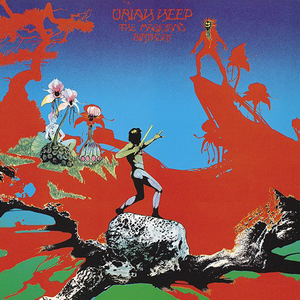
The Magician's Birthday is the fifth studio album by English rock band Uriah Heep, released in November 1972 by Bronze Records in the UK and Mercury Records in the US. The concept was "based loosely on a short story" written by keyboardist Ken Hensley in June and July 1972.
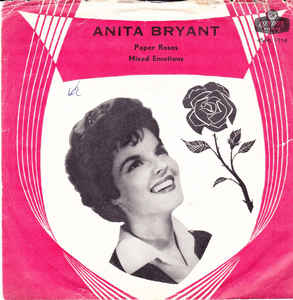
"Paper Roses" is a popular song written and composed by Fred Spielman and Janice Torre. It first was a top five hit in 1960 for Anita Bryant. Marie Osmond recorded it in 1973 and took her version to number one on the US country chart.

Paper Roses is a studio album by American singer Marie Osmond. It was released in September 1973 in conjunction with MGM Records and Kolob Records. Paper Roses was the debut studio album in Osmond's career and its title track was released as her debut single. The song topped the US and Canadian country charts. It also crossed over onto both the US, Canadian and UK pop charts upon its release. The album itself also topped the US country charts, while also reaching chart positions in Canada and the United Kingdom. An additional nine tracks were included on the album, many of which were covers of previously recorded country songs.

"Yo-Yo" is a song written by Joe South and first released as a single by Billy Joe Royal in 1966, peaking at #117 on the Billboard Hot 100 chart, and #28 in Canada. The Osmonds covered the song and released it as a single on September 4, 1971.
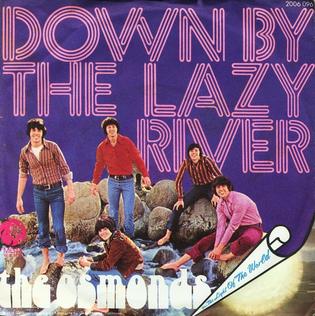
"Down by the Lazy River" is a song written by Alan and Merrill Osmond and performed by The Osmonds, it was produced by Alan Osmond and Michael Lloyd. "Down By the Lazy River" was released on January 15, 1972 and appeared on the band's 1972 album, Phase III. It was certified Gold by the RIAA on March 24, 1972. In 2021, the song was featured in the South Park episode "South ParQ Vaccination Special".
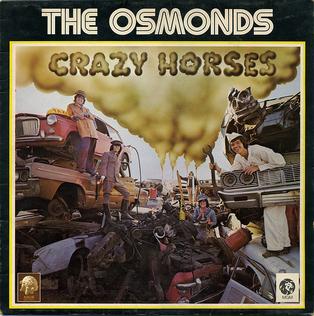
Crazy Horses is the fourth studio album by the American singing group The Osmonds, released in 1972. It entered the Billboard Top LPs chart on October 14, where it reached number 14 on December 23, 1972. Two singles were released in support of the album, "Hold Her Tight" and "Crazy Horses", both of which reached number 14 on the Billboard Hot 100 singles chart. It was certified Gold by the RIAA on January 24, 1973.
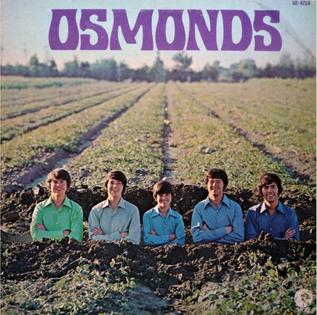
Osmonds is the third album released by the Osmonds, the first under MGM as the Osmonds and the first to feature Donny. The first single from the album, "One Bad Apple", became a number-one hit according to the Billboard Hot 100 singles chart. The second single from the album, "Sweet and Innocent", reached number seven, with the single sleeve crediting group member Donny Osmond as the artist. The album reached number 14 on the Billboard Top Lps chart on February 27, 1971. It was certified Gold by the RIAA on September 13, 1971.

The Plan is the fifth studio album by The Osmonds, released in 1973. The album contains songs that are about the Mormon faith; its name derives from the Plan of Salvation, a key tenet of the Mormon faith. It reached number 58 on the Billboard Top LPs chart. Two of the album's singles, "Goin' Home" and "Let Me In", both peaked at number 36 on the Billboard Hot 100. The album's third single, "Movie Man", did not chart.

Love Me for a Reason is the sixth studio album by The Osmonds, released in 1974. The album peaked at No. 47 on the Billboard Top LPs chart. Two singles were released from the album: the title track "Love Me for a Reason" and "Having a Party".

The Proud One is the seventh studio album released by The Osmonds in 1975. Two singles, "The Proud One" and "I'm Still Gonna Need You" were released from the album. The album peaked at No. 160 on the Billboard Top LPs chart, a precipitous drop from their previous albums.
